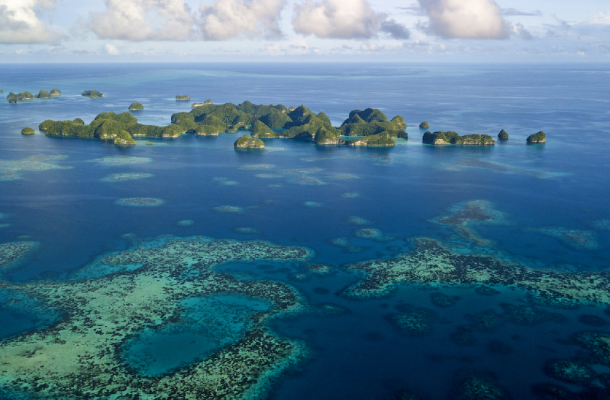Fractures from within: What now for the Pacific Islands Forum?

In 1965, the Pacific Island leaders, led by Fiji’s Ratu Sir Kamisese Mara, staged what came to be known as the “Lae Rebellion” against the dominant colonial powers who controlled the South Pacific Commission during the organisation’s Papua New Guinea meeting. This strategic move set in motion a series of events which eventually saw the setting up of the Pacific Islands Forum, an organisation which embodied the values of regionalism.
While regionalism has been tested over the years by disruptive events such as the Bougainville conflict, Solomon Islands crisis, Fiji coups, and Tongan riots, the recent withdrawal of the five Northern Pacific states of Palau, Kiribati, Nauru, Republic of Marshall Islands, and Federated States of Micronesia, poses the most serious threat to date. This action has worked to fracture the very core structure of the Forum, and the heart of regionalism.
The reason for their withdrawal is dissatisfaction with the selection of the Secretary General (SG) of the Pacific Island Forum Secretariat (PIFS), a position they rightly believed should have gone to the Micronesian candidate.
Electing the Micronesian candidate would have been in line with a gentleman’s agreement made some years back regarding rotation of the position amongst the three regional sub-groupings. The situation has raised serious issues about a number of critical aspects of the Forum.
The first of these issues involves the ongoing tension between regional and national interests and how this plays out in both implicit and manifest ways. For instance, the decision made by Fiji, Solomon Islands, Cook Islands, and Tonga to push forward their own candidates was a blatant expression of self-serving, nationalistic interest which overshadowed regional solidarity and led directly to the current political calamity.
State-centred nationalism is a common political phenomenon in modern global politics, but in the context of regional politics, it needs to be restrained and re-imagined to fit harmoniously into a bigger regional or international collective, such as the Forum.
Secondly, the three countries (Australia, New Zealand, and Fiji) which held significant influence in the Forum and which were outside the Polynesian sub-regional voting bloc, should have expressed their political and moral duty of care by upholding the gentleman’s agreement. Instead, they voted against the Micronesian candidate.
Further issues have surfaced from this injustice related to the lack of reliability and sustainability of informal norms, such as consensus (how decisions are made in the Forum) and the gentleman’s agreement on rotation of the SG position.
These informal guidelines can be easily abused or subverted by members of the Forum to serve their national interests. An inability to arrive at a consensus during the Forum meeting forced the members into this historic divisive vote which has effectively split the organisation into two.
As well, a major concern relates to the lack of a workable mechanism for intra-Forum dispute resolution. While a number of security and conflict-resolving agreements such as the Biketawa Declarations are meant to address conflict within member countries, there do not seem to be any workable mechanisms for addressing fractures within the Forum itself, as we are now seeing.
There is an assumption that consensus has magical powers to address conflict, but the reality is that it also has the potential to generate and conceal conflict. The Forum continues to operate “normally” as if nothing has happened, and the citizens of the region are still waiting for any slight movement towards resolving the breakaway issue.
The loss of five members of the Forum undermines the legitimacy and credibility of the Forum as the peak regional organisation in a significant way. For many Pacific peoples, the fractures within the Forum appear tantamount to a family breakup, and the consequences are not only political but deeply emotional and cultural as well.
For those who over the years have built up a deep sense of trans-Pacific citizenship and have made connections, the fractures in the Forum have come as a major blow to their sense of regional identity, loyalty, and dignity. The crisis is not only geopolitical, but it also has deeper implications at the level of people-to-people connection. It is one of the many times when Pacific political leaders, in pursuit of self-defined motives, have failed their most important constituencies, the people.
Rather than speculating about whether this constitutes the end of regionalism, we should start to think outside the box and creatively look for ways and means of addressing this major tectonic shift. As a starting point, the Forum should initiate the re-engagement process with the five Northern Pacific states. This will require serious diplomatic effort both at the bilateral and multilateral levels, beyond the romantic narrative of consensus.
As a way forward, a number of suggestions can be made. Firstly, the agreement for sub-regional rotation, which was originally based on an informal and loose agreement, should be formalised to ensure that there is a sense of regional equity, diversity, fairness, and balance in the way the SG is selected.
The gentleman’s agreement on rotation of the Forum’s SG position should be formalised, and the Micronesian states should be given the opportunity to provide the next SG. This could be an important measure of reconciliation and normalisation.
In addition, voices have been heard regarding fundamental reform to the Suva, Fiji-based Forum, including opinions on the need to decentralise it and provide more power and responsibility to the various sub-regions in an equitable and just manner.
This is the model already used by the Pacific Community and the University of the South Pacific (USP), which has more than a dozen regional campuses. In USP’s case, the recent intervention by the Fiji government in deporting the vice chancellor has led to the call for the relocation of the vice chancellor’s office to another location in the region.
The Micronesian countries are the smallest and amongst the most vulnerable to the ongoing global climate crisis. They have consistently raised concerns about being ignored, where the recent decision to withdraw was not a sudden reaction.
It was the eventuation of years of marginality in an organisation which claims to promote equity and unite everyone by consensus. The newly elected SG will make a good regional leader given his promising credentials, but this is not the issue. The issue is that of principle, not person.
However, there is still hope that human agency, supported by cultural empathy and regional altruism, can still win the day. It is time to start reengaging with the Micronesian states, apologise to them, formalise the SG rotational process, offer them the next SG position, and move on. That’s a simple formula to save regionalism from being fractured beyond repair.
This article was published by the Australian Institute for International Affairs.
Professor Steven Ratuva is director of the Macmillan Brown Center for Pacific Studies and a professor in the Department of Anthropology and Sociology at the University of Canterbury. His interests include security, ethnicity, geopolitics, affirmative action, development, social protection, conflict and peace-building.












